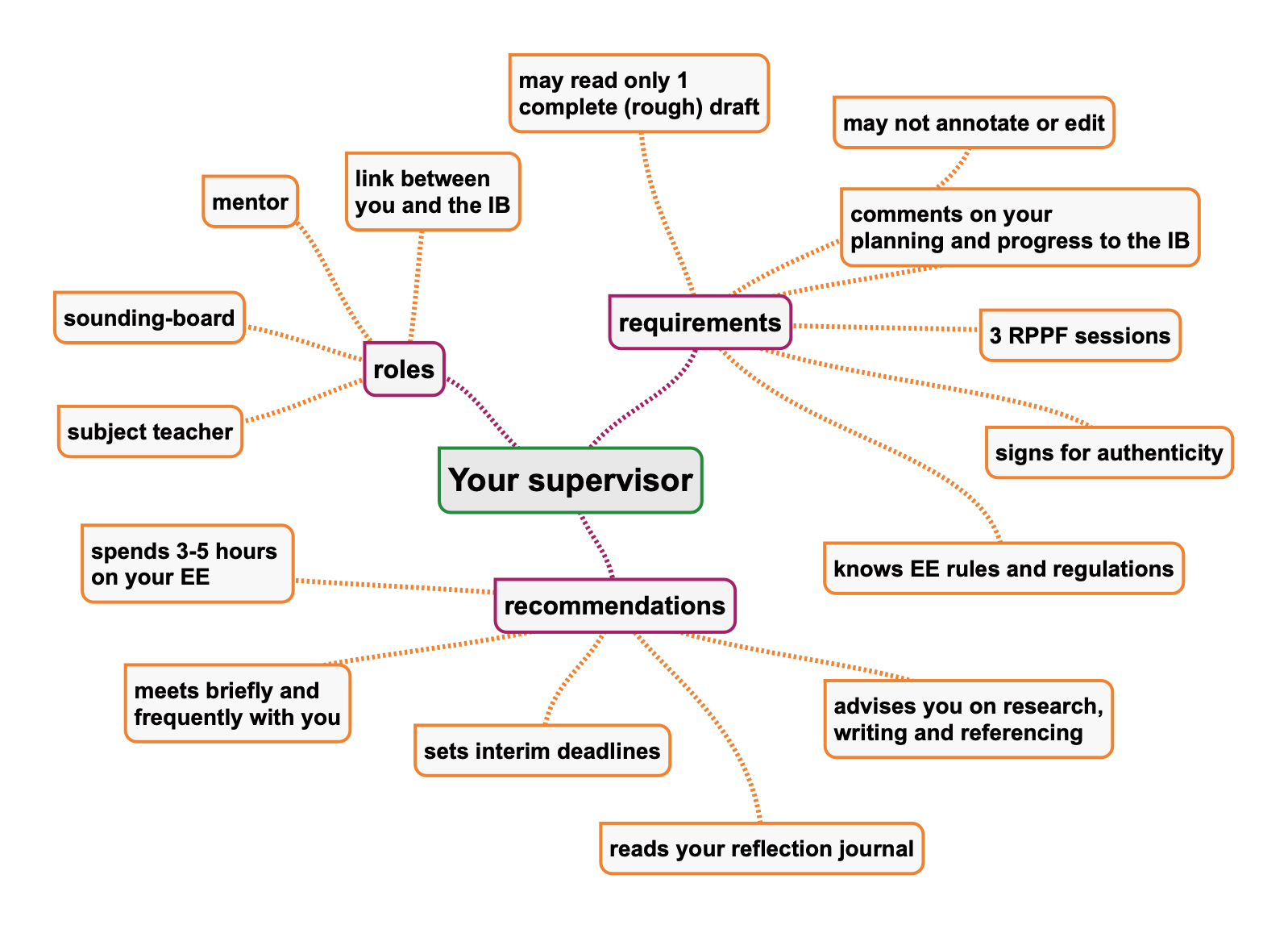Supervisor
As you set out to write your extended essay, know that you are not alone. You have a supervisor. The role of your supervisor is to guide you. Here is a mind map to help you make sense of the roles, requirements and recommendations for supervisors.

| Acceptable practice | NOT acceptable practice |
|---|---|
| Your supervisor can read several versions of your research question and guide you towards finalising your research question. | Your supervisor may not think of and write out your research question for you. |
| Your supervisor can give oral or written feedback on one complete draft of your extended essay. | Your supervisor may not annotate or edit any versions of your extended essay. |
| Your supervisor (or anyone else) can give generic advice, for instance telling you that you tend to write very long sentences, and perhaps the essay would read better if you shortened many of them. | Your supervisor (or anyone else) cannot put a red pen to your essay and show you where the full-stops (periods) should go, for example. |
| You can ask your librarian or your supervisor how to cite, for instance, a blog post or a paper read at a conference. | You cannot ask your librarian or your supervisor to check and correct all your citations and references. |
| You can ask for help in obtaining specific papers or articles – perhaps following up a reference in something else you have been reading. | Your supervisor (or anyone else) cannot tell you to delete this particular quotation and instead use a different quotation from a different writer's work. |
| After reading your first complete draft, your supervisor could tell you how many marks he/she thinks your draft would earn, if submitted in its draft form, using the assessment criteria. | Your supervisor cannot tell you how many marks your final version will earn or that your predicted grade will be your actual grade for the EE. |
Tips
-
If you cannot make a meeting let your supervisor know.
-
Be prepared before meetings. Send your supervisor a copy of your RRS or your work ahead of the meeting. Agree on an agenda for the meeting.
-
Use your supervisor as a sounding-board for your ideas.
-
If your supervisor listens to you, it’s suggested that you listen to his or her advice.
-
As well as longer RPPF sessions, arrange to meet frequently and briefly for check-in meetings.
Assessment
Keep in mind that the RPPF is assessed for Criterion E: Engagement. The supervisor writes comments about the candidate's level of engagment on the form. The examiner reads the supervisor's comments and can be influenced by these comments when determining marks. So candidates: make sure your supervisor wants to vouch for you!